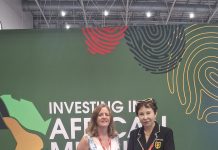By Dr.Beruniy Alimov
Sustainable Development is a process of economic and social change in which natural resources, the direction of investment, the orientation of scientific and technological development, personal development and institutional changes are coordinated with each other and strengthen the current and future potential to meet human needs and aspirations.
Sustainable development is far from a new concept, this term was coined back in 1987 in the report Our Common Future, prepared by the United Nations World Commission on Environment and Development. This historically significant report emerged as a result of massive data collection and dialogues with scientists, researchers, industry leaders and government figures around the world. It stated that the global environmental crises are interconnected and comprehensive solutions focused on sustainable development are needed to solve them.
The Sustainable Development Goals (SDGs), otherwise known as the Global Goals, are a universal call to action to protect the planet, eradicate poverty, and ensure peace and prosperity for all people. The goals were approved by all member states at the UN summit, including Uzbekistan, in September 2015 (https://www.un.org/sustainabledevelopment/sustainable-development-goals/). They include 17 goals and 169 targets to be achieved by 2030, which will be measured using more than 200 indicators.

The Sustainable Development Goals are a kind of call to action emanating from all countries and aimed at improving the well-being and protection of our planet. States recognize that all goals and ways to achieve them must be taken in parallel.
The importance of Sustainable development is reflected in the fact that it is crucial for the preservation of life on our planet. To achieve this, real steps are needed in such areas as reducing waste, conserving natural resources and preserving ecosystems. Fortunately, governments of different countries, commercial companies and ordinary people are united in their desire to achieve this.
On October 20, 2018, the Government of Uzbekistan adopted a resolution “On measures to implement National goals and objectives in the field of sustainable development for the period up to 2030” (https://lex.uz/docs/4013358?query=Program). The signed document sets out 16 national Sustainable Development Goals (SDGs) and 127 related targets for 2030.
The national SDGs provide for a set of specific goals and objectives, including socio-environmental areas. For example, in the field of energy and environmental protection, the Decree confirms the commitment to significantly increase the share of renewable energy sources in the country’s energy structure by 2030 and significantly reduce waste generation through prevention, reduction, recycling and reuse. This was initially considered and approved at the UN summit for “Goal 12: Ensuring the transition to rational consumption and production models”.
In the Decree of the President of the Republic of Uzbekistan “On approval of the Concept of Environmental Protection of the Republic of Uzbekistan until 2030” as of 30.10.2019 (https://lex.uz/ru/docs/4574010), specific priority directions of state policy in the field of environmental protection, the introduction of effective mechanisms for the prevention, detection and suppression of violations of environmental legislation, strengthening the personal responsibility of heads of state bodies and business entities, citizens for sanitary and environmental the state of the republic’s settlements, as well as ensuring the achievement of National Sustainable Development Goals and Targets for the period up to 2030.
In particular, the concepts of:
- preservation and quality assurance of environmental objects (atmospheric air, waters, lands, soils, subsoil, biodiversity, protected natural areas) from anthropogenic impact and other negative factors;
- priority use of materials, products, production facilities and other facilities that pose the least environmental danger;
- expansion of protected natural areas;
- ensuring the environmentally safe use of toxic chemical and radioactive substances;
- improvement of an environmentally sound waste management system;
- formation of the ecological culture of the population, increasing the transparency of the activities of state bodies in the field of environmental protection and strengthening the role of civil society.
According to the decree, it was instructed, together with the Ministry of Economy and Industry, the Ministry of Health, the Ministry of Innovative Development, the State Committee for Industrial Safety, taking into account international experience, to develop and submit to the Cabinet of Ministers a draft Law of the Republic of Uzbekistan “On Waste” in a new edition, including providing:
- Introduction of a waste classification system based on industries and/or chemical and physical parameters instead of a system of five hazard classes;
- economic incentives for the development and implementation of waste-free and low-waste technologies in production, as well as technologies for recycling waste from mining and processing industries;
- ensuring the organization of environmentally safe storage of hazardous waste at industrial facilities;
- organization of a system for collecting, using and/or neutralizing goods that have lost their consumer properties and contain dangerous substances (mercury thermometers, batteries, mercury-containing lamps and others);
- organization of a system for the collection, neutralization, disposal and burial of medical waste.
Thus, Uzbekistan was one of the first in Central Asia to introduce the principle of “zero waste” in the field of waste recycling.
In the field of solid waste management in Uzbekistan, a new procedure and mechanisms based on the principles of “Zero waste” have been introduced. This was also stated in the decree of President Shavkat Mirziyoyev as of May 31, 2023, on the transformation of the sphere of ecology and environmental protection (https://lex.uz/ru/docs/6479185).
The decree provides for the transition to separate collection and removal of household waste, depending on their types. It was planned:
– introduction into the field of circular economy practice — newly generated waste should be recycled or incinerated at the maximum level without sending them to landfills.
– to achieve complete recycling and incineration of waste in all operating landfills in stages.
The excess heat or electric energy obtained as a result of waste incineration will be directed to meet the needs of the population and production to existing energy and communication networks at the expense of payment, including using the “green tariff” system.
In order to increase the efficiency of the new system, it is planned to introduce a system for allocating “green subsidies” from the state budget. The decree prohibits the privatization of landfills. The leasing of landfill territories to organizations engaged in waste recycling, their cleaning and the sale of released land plots are carried out by the Ministry of Ecology.
President of Uzbekistan Shavkat Mirziyoyev, speaking at the 78th session of the UN General Assembly held on September 19, 2023 (https://president.uz/en/lists/view/6679), drew special attention to the fact that today there is an acute environmental situation in the world. The triple planetary crisis caused by climate change, loss of biodiversity and environmental pollution is intensifying. The Head of State also stressed that the strategic task remains to adapt the main sectors of the Uzbek economy to climate change, achieve carbon neutrality and radically increase the share of “green” energy.
Green energy is the production of electricity from renewable energy sources. Such sources include solar energy, wind, hydropower, geothermal heat, tidal energy, biofuels and more. One of the important advantages of alternative energy is that it is replenished faster than it is consumed. Unlike traditional energy sources, renewable energy is considered safer. It produces harmful substances and waste to a much lesser extent or does not produce at all.
Focusing on the problems in the energy issue, the most high-profile problem of the energy crisis in Central Asia, including Uzbekistan, was the blackout of 2022 (according to https://www.bbc.com/news/world-asia-60123178), telling us that the likelihood of depletion of traditional energy sources in the coming decades is inevitable.
Since last year, Uzbekistan has begun the phased implementation of a system of “green energy” certificates confirming the generation of electricity using renewable energy sources. According to the implemented procedure, one green energy certificate confirms the production of 1000 kW.electricity consumption using renewable energy sources.
Uzbekistan has also set an ambitious goal – to generate 30% of electricity from renewable sources by 2030. And one of the decisive roles here is to be played by the energy of the sun.
Today, large-scale projects in the field of solar energy attract international private investors to Uzbekistan. The reforms of recent years in Uzbekistan have opened the way for international private investment in projects related to renewable energy sources. The state provides long-term guarantees for the purchase of “green” electricity. Tenders are organized with the support of international organizations. The International Finance Corporation, a member of the World Bank Group, helps Uzbekistan to structure private public partnership projects in the field of renewable energy sources.
Zafar Hashimov, Head of the IFC/World Bank Group Representative Office, noted:
– To date, projects with a total capacity of more than 1,000 MW in solar energy have been implemented, 800 MW are at the tender stage. Tenders are of great interest to international investors. We see investors from Saudi Arabia, the UAE, China, Japan, and Korea. This huge interest allows us to receive very competitive tariffs based on the results of tenders. Solar panels can be installed widely throughout the country: on the roofs of state institutions, educational institutions, hospitals, bazaars, parking lots, etc., which saves money and exempts land and property taxes on the area covered by modules for 10 years.
Solar panels are installed on the roofs of many government buildings in Uzbekistan. Uzbekistan has an average of 330 sunny days per year, and the potential of solar energy here is huge. The country is striving to use maximum solar energy in the coming years.
Summing up, the decade of ambitious actions to achieve the Sustainable Development Goals calls for accelerating the implementation of sustainable solutions to all serious problems of the world, including climate change. The whole world has proven that only joint work on waste management and combating environmental pollution can produce significant results on the way to preserving our planet.






